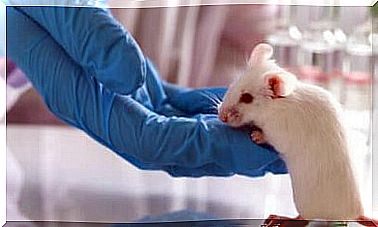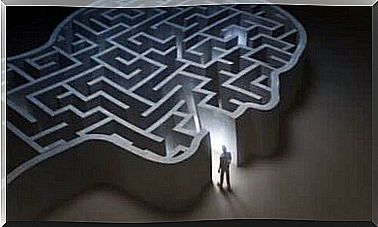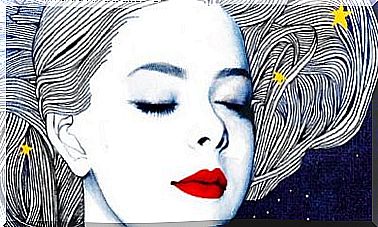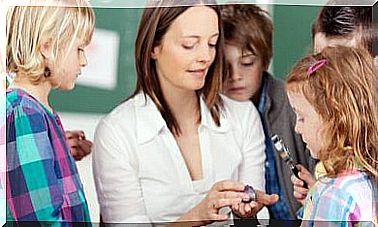Are Love And Infatuation Two Sides Of The Same Coin?

“It’s one thing to fall in love. It’s another thing to feel that someone is falling in love with you and to feel the responsibility for that love.” David Levithan wrote this in his book, Every Day. Could he have meant that there is a difference between love and infatuation? Perhaps.
And as it turns out, a lot of people think that love and being in love are the same thing. But the truth is that there are many experts who think that is incorrect. There are important differences that we will now go into in more detail.
Differences between love and infatuation
One of the classic differences between love and infatuation becomes apparent when we think of the “romantic” part. We will present you a question to better explain it. Do you love your siblings, parents, friends, pets..? You know you’re not in love with them, right?
Obsession and desire
Because infatuation, in neurochemical terms, creates a great desire, a great obsession. We might even call it an addiction. Our attention centers around the person we love.
Now the activities we did alone and enjoyed are nothing compared to anything we could do with him.
Chemistry also has a lot to say about falling in love. While we are ‘enchanted’, powerful neurotransmitters such as serotonin and dopamine invade our brain. The neurochemical effect of falling in love on our brain is not that different from some other drugs.
Maybe this scientific talk is bursting our mysterious, magical bubble of infatuation, but it’s the truth. These neurotransmitters are the ones that make us perceive our emotions so intensely.
We idealize our partner. He fills us with energy and makes us live in a kind of bubble. Now if you could make that last forever, that would be great, wouldn’t it?

Love is very diverse
As we mentioned at the beginning, we can love a lot of people, but falling in love often focuses on one person. It’s like everything comes down to that person.
If the other person hints at something they want, we immediately try to figure out how to make it happen. When we find a way, we usually underestimate the costs – be it time, money, other relationships, etc. – that we bear.
In many cases, infatuation is precisely the starting point of love. This brings people to a point where they begin to bond with each other. They are bonds that are part of what keeps the couple together in times of crisis.
On the other hand, do you have self-love? Do you love your partner? Do you feel a lot of love for your parents? Do you love your closest and valuable friends?
Of course you do, but not all of them equally or under the same conditions. As you can see, we have already been able to recognize some differences between love and infatuation.
Love is more rational
This point comes right after the two points mentioned above. This point is that love is rational, or at least less irrational than infatuation. We don’t feel the same emotional intensity for a friend or sibling as we do for the person we are in love with.
Because being in love means an enormous increase in the chemical neurotransmitters that give emotions an increased intensity. But little by little these too will disappear and give way to a calmer, more rational love. At least that’s how it goes in the majority of cases (there are always exceptions).

Time goes on for everyone
It’s hard to make the infatuation phase last any longer. This is mainly because it consumes the resources of the person in love. Even if he himself won’t feel that way during the infatuation phase, it’s true. So in the end , the crackling flame of infatuation turns into a more subdued flame.
At the beginning of a relationship, expectations are high. There is an intense attraction and a lot of tension about what might happen. But time goes on. And with this comes security, stability, affection, shared ways of communicating.
We’re falling off the pink cloud
While we are completely immersed in the process of falling in love, we live on a pink cloud. It’s like it lifts us to heaven, because that’s where the person we’re in love with is. We even lose sleep over this image of perfection.
But it doesn’t matter how high this cloud takes us to that person’s pedestal. There always comes a time when we have to get off it, touch the ground and stop flying around blindly.
That’s when love comes into play (for some people, it even transforms). And then the person shows his defects, but also his intimacy, his understanding and his care.
Love is mutual
Couples who just got to know each other often have an enviable harmony. Empathy is easier at this stage because they are both very attentive to each other.
But knowledge and mutual understanding are a slow-simmering pot, as is trust. We will never even stop discovering the other person. That’s partly because it’s dynamic and changing. Even if he changes his habits, social circles or personality.
But we distinguish one solid core in the other. We see a kind of stability in the way he makes us feel like he knows us.
We know his expressions, the face he makes that tells us whether or not he liked something. Other people wouldn’t notice it even if they paid more attention, but we wouldn’t miss it.
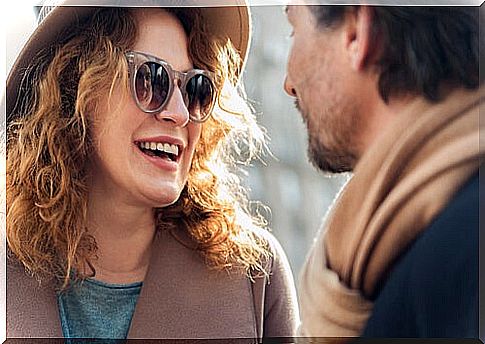
However, when the infatuation ends, sometimes the desire also weakens and the weaknesses surface. But once we’re through the transition, we’ll reinforce other parts.
We’ve already talked about trust, mutual understanding and intimacy. But if there is one good sign of continued love, it is that mutual admiration remains steadfast.
The differences between love and infatuation that we have explained in this article are just a draft. As always, real life is much more interesting.
There are people who say they are in love with a friend. There are others who start loving their partner and later fall in love, or never do. And there are couples who claim to have stayed in love throughout their lives.
Regardless of the differences between love and infatuation, it is important to see every relationship as a positive adventure.
